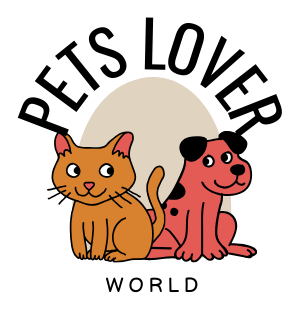Table of Contents
ToggleIntroduction: Can Cats Have Pineapple Juice?
Let’s explore the question Can Cats Have Pineapple Juice? Pineapple juice is a popular beverage enjoyed by many humans for its refreshing taste and potential health benefits.
But what about our feline companions? Can cats have pineapple juice, or is it best to keep this tropical drink to ourselves?
In this article, we explore whether pineapple juice is safe for cats to consume and the potential risks and benefits associated with feeding it to them.
Nutritional Content of Pineapple Juice

Pineapple juice is rich in vitamins, minerals, and antioxidants, including vitamin C, manganese, and bromelain. While these nutrients can be beneficial for humans, cats have different dietary requirements, and their bodies may not process certain substances found in pineapple juice as effectively.
Cats’ Digestive System
Cats are obligate carnivores, meaning their diet should primarily consist of meat. Their digestive systems are adapted to digesting and metabolizing animal proteins efficiently.
While cats may occasionally consume small amounts of plant matter in the wild, such as grass, their digestive systems are not designed to handle large quantities of fruits or vegetables.
Risks of Feeding Pineapple Juice to Cats
Feeding pineapple juice to cats can pose several risks to their health. Pineapple juice is acidic and may cause gastrointestinal upset in cats, leading to symptoms such as vomiting, diarrhea, or stomach discomfort.
Additionally, pineapple juice contains natural sugars, which can contribute to weight gain and dental issues in cats if consumed in excess.
Potential Benefits of Pineapple Juice for Cats

While pineapple juice may not be suitable as a regular part of a cat’s diet, some pet owners may wonder if it offers any potential health benefits for their feline companions.
Pineapple contains bromelain, an enzyme with anti-inflammatory properties that may offer some relief for cats with certain health conditions, such as arthritis.
However, the concentration of bromelain in pineapple juice is typically low, and other sources may be more effective for addressing these issues in cats.
Moderation and Frequency
If you’re considering offering pineapple juice to your cat, it’s essential to do so in moderation and only as an occasional treat. Limit the amount of pineapple juice given to your cat to avoid potential digestive upset and monitor for any adverse reactions.
It’s also essential to consult with your veterinarian before introducing any new foods or beverages into your cat’s diet, especially if your cat has any underlying health conditions or dietary restrictions.
Alternatives to Pineapple Juice
Instead of offering pineapple juice to your cat, consider other safe and healthy treats that are more suitable for feline consumption. High-protein snacks such as cooked chicken or freeze-dried meat treats are excellent options for rewarding your cat without the potential risks associated with pineapple juice.
Conclusion
In conclusion, while pineapple juice may be a tasty and nutritious beverage for humans, it’s best to avoid offering it to cats. Cats have unique dietary requirements and may not tolerate pineapple juice well, leading to potential digestive upset and other health issues.
Instead, focus on providing your cat with a balanced diet consisting of high-quality cat food formulated to meet their nutritional needs, and consult with your veterinarian for personalized dietary recommendations for your feline companion.
FAQs about Cats and Pineapple Juice
Here are some FAQs related to
- Q: Can cats safely drink pineapple juice?
- A: While small amounts of pineapple juice may not immediately harm your cat, it’s generally not recommended due to the risk of digestive upset and other health issues.
- Q: What are the potential risks of feeding pineapple juice to cats?
- A: Pineapple juice is acidic and contains natural sugars, which can lead to gastrointestinal upset, including vomiting and diarrhea, in cats. Additionally, the high sugar content can contribute to weight gain and dental problems.
- Q: Is there any nutritional benefit to giving cats pineapple juice?
- A: While pineapple contains vitamins and minerals beneficial to humans, cats have different dietary requirements. The nutritional benefits of pineapple juice for cats are minimal compared to the potential risks.
- Q: Can pineapple juice help with certain health conditions in cats?
- A: Pineapple contains bromelain, an enzyme with anti-inflammatory properties that may offer some relief for cats with arthritis or other inflammatory conditions. However, the concentration of bromelain in pineapple juice is typically low, and other treatments may be more effective.
- Q: How should pineapple juice be introduced to cats, if at all?
- A: If you’re considering offering pineapple juice to your cat, do so in moderation and only as an occasional treat. Monitor for any adverse reactions, and consult with your veterinarian before introducing new foods or beverages into your cat’s diet.
- Q: Are there safer alternatives to pineapple juice for cats?
- A: Yes, there are many safe and healthy treats available for cats, such as cooked chicken or freeze-dried meat treats. These options are more suitable for feline consumption and less likely to cause digestive upset.
- Q: Can cats eat pineapple itself, rather than just the juice?
- A: While pineapple itself is not inherently toxic to cats, it’s still not recommended due to the risk of digestive upset. Additionally, the tough texture of pineapple may be difficult for cats to chew and digest.
- Q: What should I do if my cat accidentally consumes pineapple juice?
- A: If your cat ingests pineapple juice and experiences symptoms such as vomiting or diarrhea, contact your veterinarian for guidance. Provide plenty of fresh water and monitor your cat closely for any signs of distress.
- Q: Are there any specific health conditions that pineapple juice may benefit in cats?
- A: Some pet owners may wonder if pineapple juice can help with urinary tract issues or hairballs in cats. However, there is limited evidence to support these claims, and it’s best to consult with your veterinarian for appropriate treatment options.
- Q: How can I ensure my cat’s diet meets their nutritional needs without pineapple juice?
- A: Focus on providing your cat with a balanced diet consisting of high-quality cat food formulated to meet their nutritional requirements. Avoid offering foods or beverages that may pose risks to your cat’s health, and consult with your veterinarian for personalized dietary recommendations.
Related Posts :
Let’s Understand Do Cats Get Horny? TOP 10 FACTS
Let’s understand Is Pura Safe for Cats?
Let’s Understand: Can Marshmallows Kill Cats in 2024
